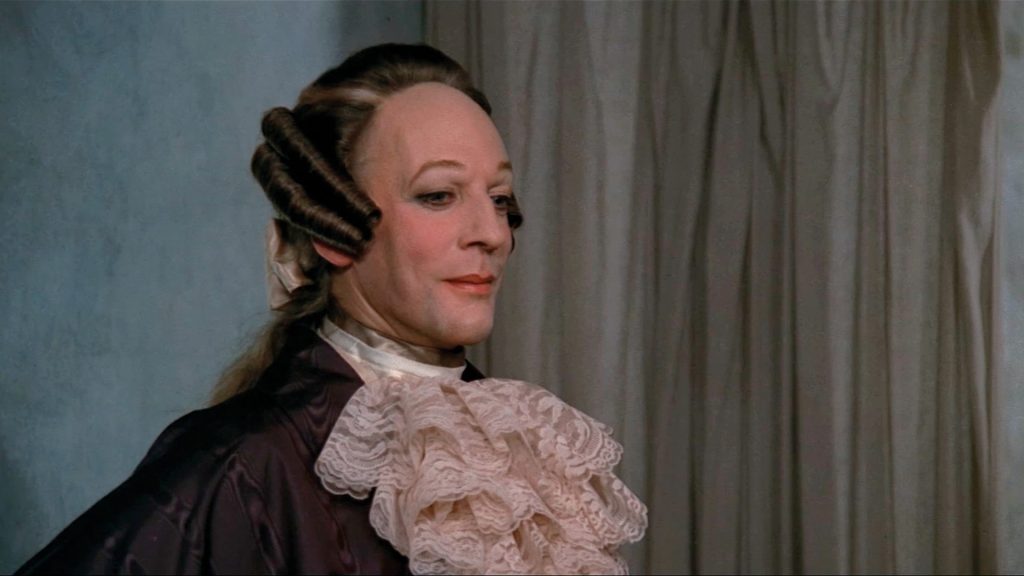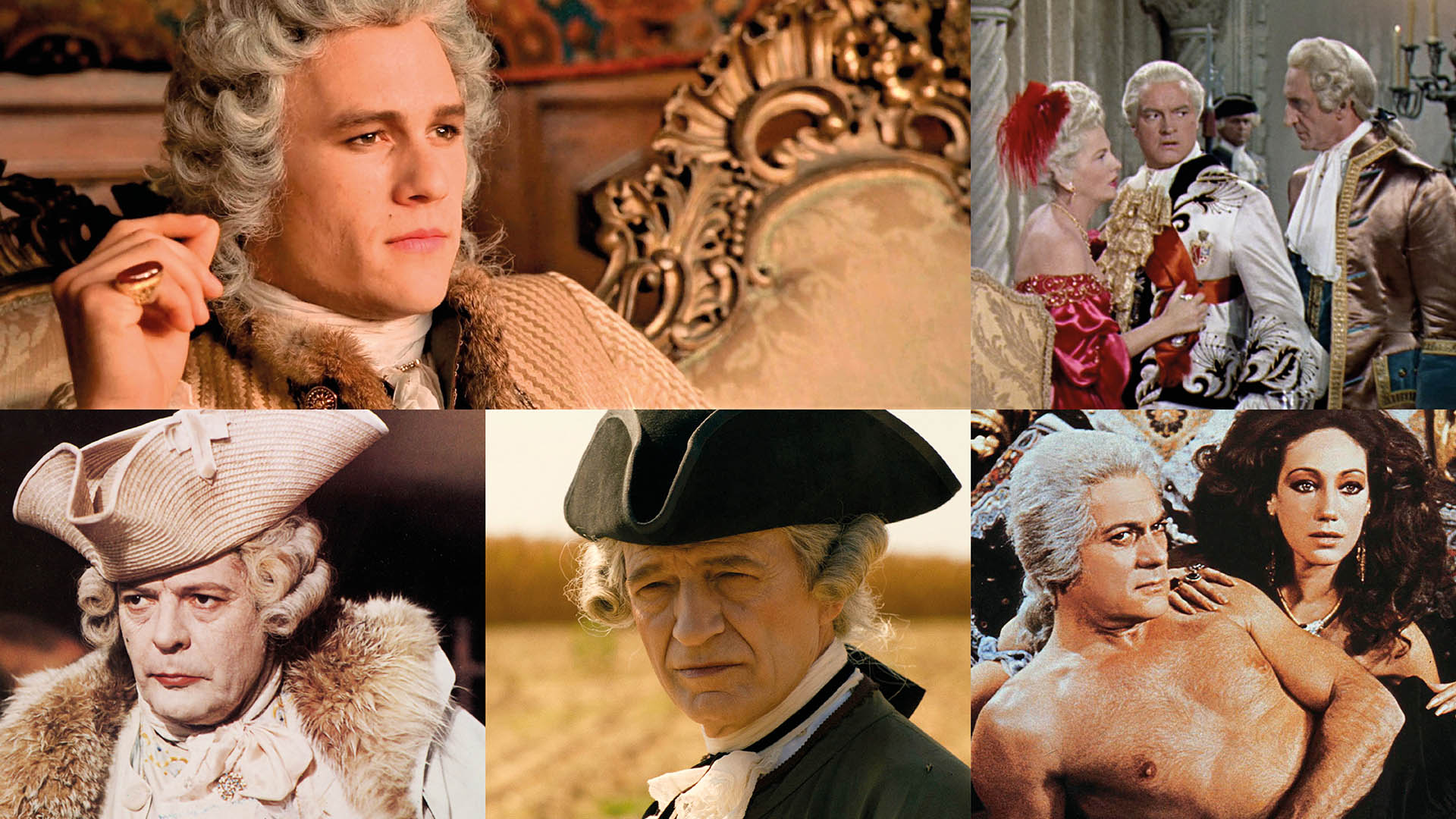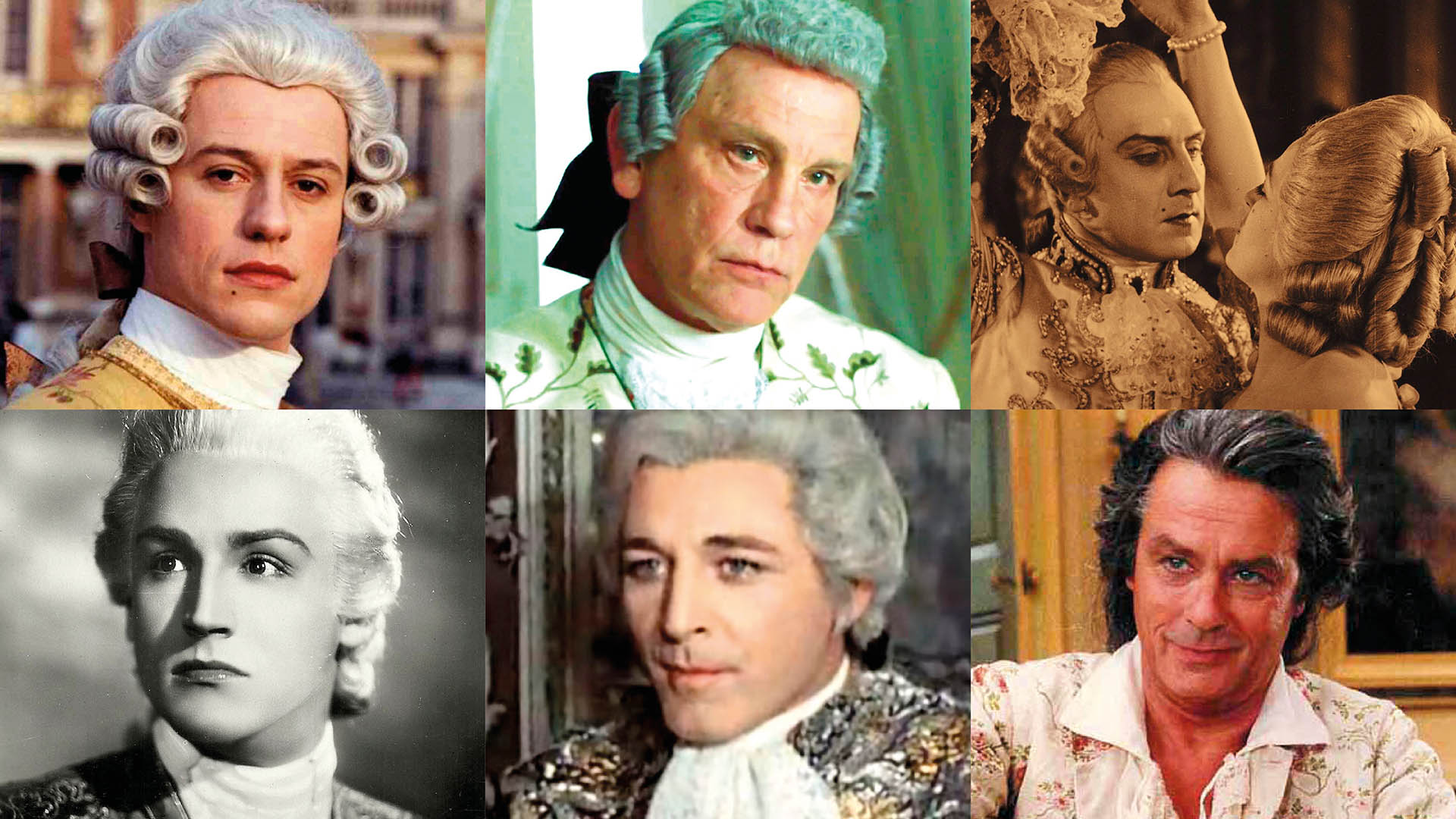
A showcase of films, directors, and actors who have reimagined the figure of the great Venetian Seducer, between myth and reality.
Giacomo Casanova’s is an icon: an emblem of sinful sexual transgression, it has been a character many times in cinema, often on the backdrop of the lascivious Venetian Carnival, with all its lusty promiscuity and that mysterious atmosphere. Casanova’s memoir, Mémoires de J. Casanova de Seingalt, écrits par lui-même, written in Dux and published posthumously, created a myth aura around the historical character, and have been the basis for further adaptations of his stories and adventures. The great silent movie star Ivan Mosjoukine was in Casanova (1927) by Aleksandr Volkov as the eponymous character, the shining, charming adventurer over a majestic background. Produced by the French Ciné-Alliance and recently remastered, the feature narrates Casanova’s memories using sceneries and situations of unparalleled visual impact. Casanova’s most audacious, sinister character is to be found in 1948 swashbuckler The Mysterious Rider, by Riccardo Freda. A young Vittorio Gassman plays our hero in a story of court conspiracies, fleeting love stories, and incredible travels. Speaking of swashbucklers, in 1938, Nerio Bernardi plays Casanova for filmmaker Ferdinando Maria Poggioli in Bayonet, on a subject by playwright Alessandro De Stefani. A few years later, in 1943, Casanova would be played by Gustav Waldau in German U.F.A. production Münchhausen. The production was ordered by Goebbels himself.

We owe the most daring, explosive transposition of Casanova’s writings to Federico Fellini. Fellini is a charming fable teller, alright, though wasn’t Casanova one, too? Here, the former seducer is a decaying, withering, impotent misogynist, a mirror of society and of all the places he lived in. Donald Sutherland’s face is heavily made up to look as closely as possible to an aged Casanova, a man who must confront physical decline and the ghost of death. All sets, including Carnival-time Venice, had been, as was usual at the time, built at Studio 5 in Cinecittà, Rome, with Danilo Donati overseeing. The set renders the beautiful dreamlike ambiance we came to expect from Fellini, aided by Roland Topor’s magic lantern drawings. Fellini read several times The Stones of Venice by John Ruskin and The Desire and Pursuit of the Whole by Frederick Rolfe a.k.a. Baron Corvo, which gave him inspiration for his narrative. Fellini’s story detached, in fact, by the traditional representation of Giacomo Casanova. Strangely enough, Fellini didn’t take into consideration the work of Austrian author Arthur Schnitzler, Casanova’s Homecoming, which had a number of film adaptations and had much in common with Fellini’s take in terms of decadence, nostalgia, and solitude. Wind, an essential element in Fellini’s oeuvre, is all about Sutherland’s Casanova, too, a light natural element, though not as light as the feminine figures in the film. The senile obsessions and fear of decay of the old Casanova are present in John Malkovich’s histrionic performance. Casanova Variations of 2014, written and directed by Michael Sturminger, itself an adaptation of chamber opera The Giacomo Variations, also by Sturminger. We are looking at a curious mix of theatre, music, cinema, and meta-cinema in a whirlwind of references, flashbacks, and narrative short-circuits. Another interpretation that is one of a kind is Marcello Mastroianni’s in 1982 film That Night in Varennes by Ettore Scola. In it, an old, wasted Casanova fleeing the French Revolution homages pre-cinema as well as John Ford’s Stagecoach.

Unlike Fellini, other filmmakers worked on Schnitzler’s stories, so full of psychoanalysis, eroticism, and perturbing spirits. Two examples might be La Ronde (Reigen), adapted into film by Max Ophüls in 1950, and Dream Story, which Stanely Kubrick included in the ending of Eyes Wide Shut. With Casanova’s Homecoming, Schnitzler plays with redesigning the character of the declining Venetian philanderer in a sort of continuation of his memories. The 2023 film by Gabriele Salvatores is yet another piece of meta-cinema, a game of mirrors that sees a protagonist, filmmaker Leo Bernardi, experiencing author’s block and unable to complete his film. Fabrizio Bentivoglio plays an aging Casanova. A further two interpretations are Alain Delon’s in Édouard Niermans’ 1992 film and a 1978 made-for-TV movie by Pasquale Festa Campanile starring Giulio Bosetti. Giorgio Albertazzi toured theatres with his own adaptation in the 1990s. Shot in Venice and Padua, Giacomo Casanova: Childhood and Adolescence is a film by Luigi Comencini released in 1969. Comencini plays counter to all the aforementioned works. In his film, only the first five chapters of Casanova’s memoir are used: the matter is lighter, more titillating, and plays like a bildungsroman set in the age of enlightenment. The film wonders if Casanova was, in fact, the son of aristocrat Michele Grimani, played by the great Venetian actor and scholar Arnaldo Momo. A great number of actors donned Casanova’s clothes, from Bob Hope to Tony Curtis, the lamented Heath Ledger, Ugo Pagliai, Stefano Accorsi, Gabriele Ferzetti, which goes to show how much modern culture had been irreversibly influenced by a real character and his imaginary double.